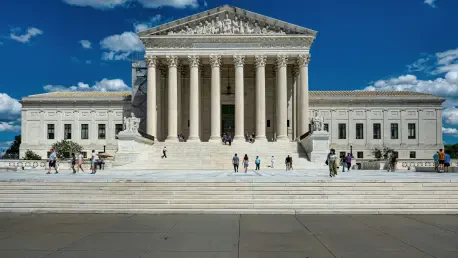In a groundbreaking case impacting commercial property leasing, the Alabama Supreme Court delivered a verdict that underlines the vital elements of legal authority and property management. This investigation explores the dispute between Hembree Insurance Trust and Maples Industries, Inc., highlighting key legal arguments, court decisions, and implications for the future of trust and LLC property leasing.
Presenting the Issue and Its Significance
Hembree Insurance Trust entered into a lease agreement with Maples Industries in February 2019, leasing a significant industrial property in Scottsboro, Alabama. This agreement set forth specific terms, including maintenance obligations that mandated roof repairs. The landlord-tenant relationship between the parties spanned several years, initially dating back to 2011, and renewed in 2014. However, in March 2024, when Hembree filed a lawsuit over alleged non-compliance with the maintenance clause, the validity of the lease came into question due to Hembree’s lack of legal title at the lease’s inception. The dispute required judiciary examination, bringing key legal principles into the spotlight.
Detailed Findings and Evidence
The crux of the dispute centered around the authority of Hembree Insurance Trust to enforce lease terms without holding the legal title to the property. When Maples Industries challenged the lawsuit filed by Hembree in 2024, they presented a 2014 warranty deed showing the property’s title had been transferred to Woods Cove Industrial Property, LLC. The Jackson Circuit Court ruled in favor of Maples Industries, invalidating the lease as “null and void in all respects.” Hembree Insurance Trust disputed this decision, leading to an appeal where they provided evidence asserting their legal authority derived from being the sole member and manager of Woods Cove Industrial Property, LLC. The Supreme Court examined organizational documents confirming this claim, shifting the focus to lawful possession and management authority rather than strict adherence to title holding.
The Supreme Court acknowledged Hembree’s consistent role as lessor, emphasizing Alabama’s legal estoppel doctrine, which prevents tenants from questioning their landlord’s authority once possession is accepted under lease terms. This principle is embedded in Alabama Code § 35-9-1, which played a crucial role in the court’s analysis.
Analyzing Arguments and Supreme Court’s Ruling
Maples Industries argued that the lease was void due to no meeting of the minds regarding property ownership. Despite this, the Supreme Court observed Maples Industries’ execution of the lease agreement and subsequent rent payments as solid evidence of assent. The court rejected claims of fraud, misrepresentation, or mistake as outside the scope of the current proceedings. Additionally, unresolved factual issues concerning Hembree’s leasing authority led the Supreme Court to reverse the lower court’s summary judgment, remanding for further proceedings. This decision underscores that possessing lawful authority is a key factor in leasing validity, irrespective of the title holder’s identity.
Implications and Future Considerations
The Alabama Supreme Court’s decision not only impacts the ongoing litigation but also sets a precedent for similar disputes involving trusts and LLCs in commercial property leasing. Insurance trusts and entities managing commercial real estate should take note of this ruling, as it highlights the enforceability of leases executed by trusts acting through LLCs. This case clarifies the legal framework within Alabama, reinforcing the importance of organizational structure and management authority in lease agreements.
Conclusion and Next Steps
In conclusion, the case of Hembree Insurance Trust v. Maples Industries, Inc. has provided critical insights into the legal boundaries of property leasing authority. The Supreme Court ruling affirmed that lawful authority and possession are pivotal in validating lease agreements. As this case advances through further proceedings, commercial trusts and LLCs must ensure their organizational documents and management roles are clear and robust to avoid future disputes. This landmark case will inform and guide leasing transactions and legal strategies within Alabama and beyond, shaping the future landscape of commercial property management and leasing practices.









